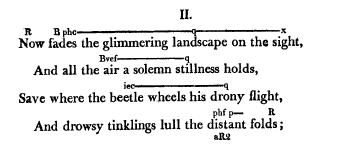Benjamin Bagby's Beowulf
We went to Lincoln Center on Saturday night to see and hear Ben Bagby perform the first third of Beowulf. It was amazing: as a performance, as a story, as a feat of memory and stamina. Over 1,000 lines of text (and I have trouble memorizing 15 lines!) in Old English, spoken, sung, declaimed, and everything in between. I was really moved by the story, too, the hero who sees a problem and decides, even though the monster Grendel isn't his own problem, that he should offer to deal with the situation when the king's men prove unable to help, even though it might cost him his life.
I saw Ben perform this once before maybe 8 years ago, at the Amherst Early Music Festival, I believe. His performance has developed a lot and is totally embodied physically with a wonderful play of gesture and facial expression to match the amazing variety of vocalizing. He uses his right hand to play the harp, and then to gesture, sitting almost all the while on a small bench. So the movement is very limited, and yet...clear, telling, exciting. I especially liked the many ways he managed to eat his hand and paw his face while imitating Grendel devouring the sleeping warriors, but also striking was Beowulf removing his helmet and his sword before the battle (because he has decided to do battle with his bare hands) and the way the repetition of the gesture of supplication or address to the gods created a gestural refrain through the piece. The shadows cast by his little footlights silhouetting his gestures were a nice addition to the performance.
I want to know what happens next--there were enough little hints as the narrative came to a close that sent me riffling the bookshelf to see if I had kept my tattered copy of Beowulf, and I think the sad answer is, no, I did not. I'll have to add it to the summer library list. Meanwhile check out the website www.bagbybeowulf.com where you can see upcoming performances, pictures, and purchase a DVD.
I saw Ben perform this once before maybe 8 years ago, at the Amherst Early Music Festival, I believe. His performance has developed a lot and is totally embodied physically with a wonderful play of gesture and facial expression to match the amazing variety of vocalizing. He uses his right hand to play the harp, and then to gesture, sitting almost all the while on a small bench. So the movement is very limited, and yet...clear, telling, exciting. I especially liked the many ways he managed to eat his hand and paw his face while imitating Grendel devouring the sleeping warriors, but also striking was Beowulf removing his helmet and his sword before the battle (because he has decided to do battle with his bare hands) and the way the repetition of the gesture of supplication or address to the gods created a gestural refrain through the piece. The shadows cast by his little footlights silhouetting his gestures were a nice addition to the performance.
I want to know what happens next--there were enough little hints as the narrative came to a close that sent me riffling the bookshelf to see if I had kept my tattered copy of Beowulf, and I think the sad answer is, no, I did not. I'll have to add it to the summer library list. Meanwhile check out the website www.bagbybeowulf.com where you can see upcoming performances, pictures, and purchase a DVD.

